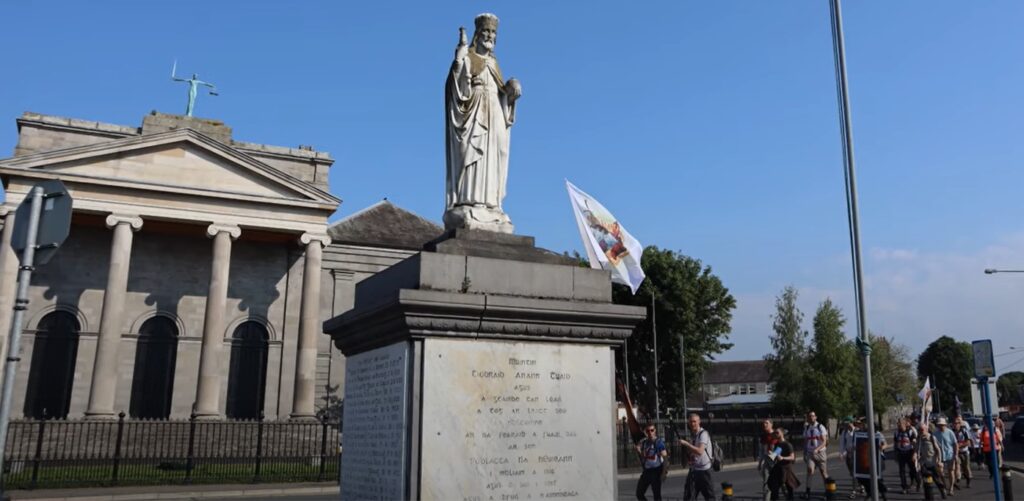SACRED HEART walking PILGRIMAGE 2024
An 80 KM walking pilgrimage from Nenagh to Limerick to honour the Sacred Heart of Jesus
5th – 7th June 2024.
See below and the “About” page for more details
The focus of this walking pilgrimage is to make reparation to the most Sacred Heart of Jesus for personal sins and especially for the sins of Ireland in legislating for Abortion and redefining Marriage.
The pilgrimage is entrusted to the Scared Heart of Jesus and to the patronage of the following saints.
Our Lady of the Rosary of Limerick.
St. Joseph.
St. Margaret Mary Alacoque
St. Joan of Arc.
St. Senan
The Nenagh Martyrs.
Blessed Terence Albert O’ Brien O.P.
Last year’s pilgrimage below.
Walking pilgrimages always existed in the Church. The apostles, before leaving Jerusalem to go out to the whole world, visited the holy places like Bethany, the place of the Ascension etc. By the middle ages large numbers of Catholics walked for days and weeks to Rome, Santiago, Chartres, Walsingham etc.. St. Louis IX and St Joan of Arc were regulars to Chartres. Our own St. Coloman, on the way to Rome, was martyred in lower Austrian in the 11th century and some three hundred years later pilgrims were recorded as leaving from St Nicholas’ church in Galway to go by Ship to northern Spain and then by foot to Compostela.
It is no coincidence that Christendom was at its height when walking pilgrimages were most popular. This was the time too when faith and reason (initiated by the Peripatetics) was fully harmonised in Thomistic scholasticism. These Catholics knew the importance of the journey as well as the destination, they understood that they were on two pilgrimages – only one of which needed walking shoes. Above all, they knew the importance of hardship along the way. They knew that when the body was exhausted and weak it was open to God’s grace more. These Catholics were prepared to make reparation, to offer up their sufferings.
For the last 100 years man’s modern scientific mentality makes him rely on material and efficient causes, thinking nothing of getting in a car or popping on a plane to reach a pilgrimage site, hence the spiritual preparation that the pilgrimage provides is narrowed and so the final benefits consequently less. There is so much to St Augustine’s pithy line “The more the body is studied and pampered the more the soul is neglected and ruined” Our Lady said ” Since therefore we (Jesus and Mary) suffered for creatures and for their salvation I desire thee to imitate us. Suffer with a magnanimous heart and labour to increase the possessions of thy Lord …” Book 4 Chapter 7 mystical City of God. Pope Leo XIII in Laetitiae Sanctae says that there are three factors in the decline of a society 1. A distaste for laborious living 2. A repugnance of suffering of any kind 3. Forgetfulness of our future . This pilgrimage is a remedy for all three.
